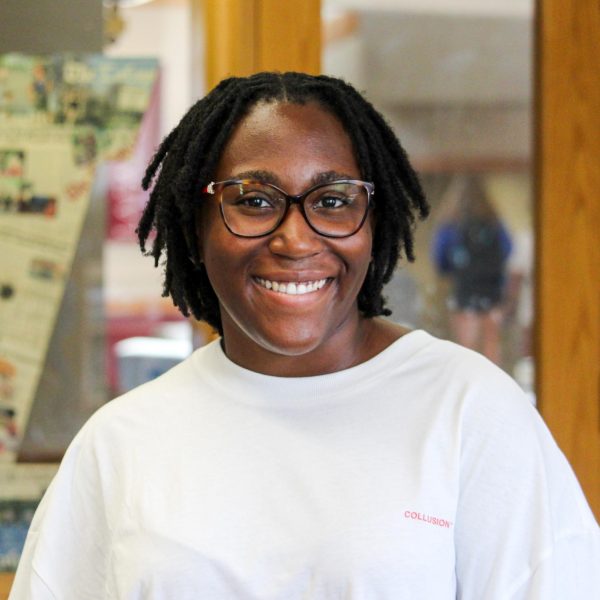Lafayette College’s radio program first came on the scene in 1922. In the past century, it has gone through a variety of changes. Larry Fast ’73 and Frank Urbaniak ’75 helped usher in a new era for the radio station, now known as WJRH, in the 1970s.
Upon Fast’s arrival, Lafayette College was an all-men’s institution, with those running the radio station mainly trying to reproduce popular sounds of the time.
“When I arrived, it was kind of a different operation. They invited us [for] sub freshmen day and the new incoming class for the next fall … would gather and get a tour and the highlight of my tour was to go to WJRH,” Fast said. “They’re playing top 40 hits, nothing very adventurous. They were trying to emulate the big New York and Philadelphia AM stations.”
After his first semester, Fast was already seeing a change on campus. The school was set to go co-ed for the next year, and with events like Woodstock occurring only a few weeks prior, students were becoming more open to less mainstream ideas.
“There was quite a transformation in the culture that had been going on for the last couple of years,” Fast said. “We were well-positioned because we did a lot of away sports games on WJRH. We had a lot of expertise within the station of working with the Bell Telephone long-distance lines for remote broadcasts.”
“We became a hub at WJRH for an intercampus or intercollegiate network, funded by the Playboy foundation by Hugh Hefner,” Fast added.
Having joined a larger system of radio broadcasting, WJRH adopted a 24-hour schedule and eventually upgraded its transmitter. Along with a change in broadcasting time, the station eventually moved away from its “pseudo top 40” sound.
“We kind of whole hog went into the freeform radio movement … and we stayed on that. When we came back in the fall, that’s when Frank [Urbaniak] started wanting to do this much more FM, progressive radio,” Fast said. “Of course, there were women on campus [so] we had women on the radio for the first time then.”
When Urbaniak began working at the college radio station, he found it to be a relatively easy application process.
“So at the time, I think the audition was just, ‘Do you have a voice? Can you follow simple directions?’ It was not very complicated at all, and I wound up in my [freshman] year getting a three-hour spot,” Urbaniak said.
Urbaniak and Fast quickly became the program director and general manager, respectively, eventually starting up the Rolling Paper, a record review station.
“We had a variety of music,” Urbaniak said. “We had people that wanted to do jazz, we had people that were more commercial, but what we were really looking for more than anything else was that we didn’t get all the albums. It was the peak of FM radio, so why wasn’t Lafayette on the mailing list of a lot of these companies?”
Through trial and error, the two tried to get the school to receive as many records as it could, and through this, they ended up with a lasting connection to famous bands like Yes and Genesis.
“I reached out [to Atlantic Records] in November 1971 and said, ‘We love this band [called] Yes.’ Nobody knew who they were in the US; ‘Fragile’ wasn’t out yet,” Urbaniak said. “So they said, ‘If you give them a write-up in your college paper, we’ll give you backstage passes,’ and we said yes,” Urbaniak said.
Armed with backstage tickets, Urbaniak and Fast went on to form a close relationship with the band, gaining privileges like test pressings and pen pal notes with member Rick Wakeman.
Though Urbaniak and Fast eventually left Lafayette and therefore WJRH, they look back on their time at the station fondly.
“It was a very exciting time if that was the world you wanted to be in at Lafayette,” Fast said.





































































































